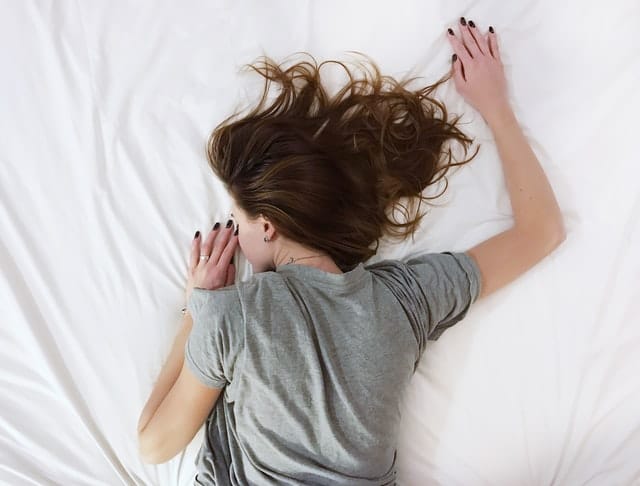Sleeping is a necessary routine to maintain health; in fact, complete lack of sleep can be deadly. Knowing how to fall asleep fast means you wake up feeling refreshed and ready. Unfortunately, many people around the world have trouble sleeping. According to The Center For Disease Control (CDC), 35% of Americans have short sleep duration (<7 hours of sleep each day). The Sleep Foundation statistics state that 10% to 30% of adults struggle with chronic insomnia. Trouble sleeping also affects children and adolescents. It is more common among males, night workers and older adults.
Not being able to sleep will take a toll on the health of anyone; it can provoke accidents while at work or driving, and can affect the person’s mood, energy and overall mental health. Difficulty falling asleep or staying asleep can be caused by many reasons such as anxiety, depression, stress, cardiovascular problems, hormone imbalance, among others. If this difficulty maintains over time, you should visit your doctor to get additional support and to diagnose any possible associated conditions.
4 Tips To Fall Asleep Quick
1. Sleep hygiene is a key to falling asleep
Sleep hygiene is a term that includes both the bedroom environment and sleep-related habits; it means creating a routine that trains your brain to know when to fall asleep. Like a muscle that strengthens with practice, sleeping well is a skill we can develop.
Because we are trying to trigger the autonomic neural-system to start the sleep cycle, it is important to form a routine. If you have ever tried to get a toddler to go-to-go sleep then you know how important it is to stick to a routine – adults are not too different. Our minds learn to associate sights, smells and activities with reflexive responses that are usually outside of our direct control. We cannot put ourselves to sleep but we can train our brain to know when to sleep.
Start by creating a wind down routine before bedtime that the brain associated with sleeping. To do this you must:
- Keep a consistent schedule whenever possible. Try to go to bed and wake up around the same time every day
- Dim the lights and cool the temperature of the room to decrease stimulation
- Engage in quiet and calm activities like reading a book or taking a bath because these help to trigger a calm state of mind.
- Do not watch TV, spend time on your phone, work or exercise right before bed
Another thing that you can do is have a special routine you enjoy for right before bedtime. For example, eating a light snack, putting on comfortable pajamas, brushing your teeth, listening to soothing music, or journaling before going to sleep. Creating such a routine forms a habit; this habit will be associated with the act of sleeping and will come in handy when you are trying to retire for the night.
2. Activities during the day can affect the quality of your sleep
Activities you can do during the day that are going to improve your ability to fall asleep and stay asleep include the following:
- Exercising during the day can really improve your ability to sleep, even 10 minutes a day can make a difference
- Limiting your naps to less than 30 minutes
- Avoiding screens one hour before bed (phones, tablets or the TV). These are very stimulating and trigger the alerting system of the brain. The light of the screen tends to have a bluish tone tint similar to the bluish lights in the morning so this is a biological trigger for you to stay awake. Research shows that blue toned light tends to trigger alertness while red or yellow tone lights tend to trigger calmness
- If you must use your phone or tablet before bed check to see if it has a night shift setting; this will change your screen colors towards the red and yellow light. Also, turn the screen brightness down to the lowest possible level and use the night setting for reading.
- Put your phone on to not disturbed mode while you are sleeping and do not check your work emails or write before bed until the next morning
- Do not bring anything that could be stressful like the news to the bedroom
- Light and sounds can trigger alertness so use earplugs, blackout curtains or sleep masks to help block out the extra stimuli
3. What you eat and drink makes a difference
What is your caffeine use like? Avoid caffeine for at least four to six hours before bedtime. Even one cup of coffee or tea early in the morning can affect your sleep for up to 48 hours. If you are not sure how caffeine is affecting you, try going off caffeine for one week. The first couple of days you might feel more tired, but by day four you will start feeling better. Within one week, most people say they feel better off than on caffeine, reporting better energy, mood, and sleep.
Limit alcohol use; while some people believe that alcohol helps them fall asleep, alcohol interferes with your brain ability to sleep well and repair itself. Especially during the second half of the night leaving you feeling more exhausted later.
Avoid heavy or fatty foods before bedtime. This might cause indigestion, and heartburn interfering with sleep. Avoid falling asleep hungry though, try a snack like a fruit or warm milk before bed.
4. Try meditating and use your bed with purpose
Relaxation routines like progressive muscle relaxation or a session of guided meditation will help create associations with your brain to trigger the sleep response.
You want to use your bed only for sleeping. If your brain associates your bed with watching TV or working, and eating, it will make it difficult to relax by associating the bed with alertness and not sleep.
If you are having a very hard time falling asleep or staying asleep, try to get out of bed and do something with little stimulation like an audiobook or documentary that you have little interest for.
Remember that you are not alone. Millions of people in the world struggle with difficulties to sleep. Sleeping hygiene will help improve the quality of your life in a big way. Once you sleep, better you will notice positive changes in your day-to-day life; however you do not have to do it alone. If you feel like you cannot fall asleep visit a doctor. Difficulty sleeping can be a symptom of many conditions that need to be treated.








